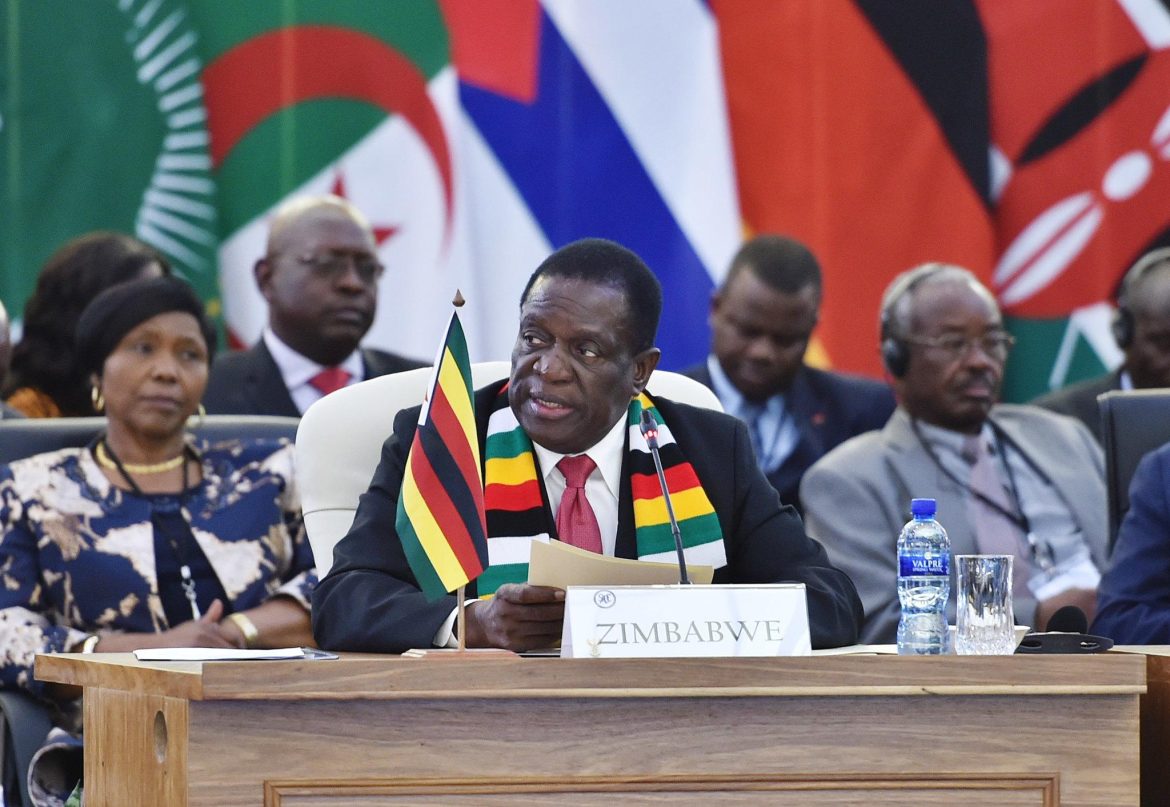Zimbabwe’s government is under heavy criticism after reports emerged suggesting it is backing businessman Wicknell Chivayo’s company, TTM Global Medical Exports (Pvt) Ltd, in a multi‑million dollar contract to import medical drugs and equipment. Reports say the company, registered in South Africa, is expected to supply over U.S. $400 million worth of medical items to Zimbabwe over a four‑year period.
Investigative journalists and public interest voices in Zimbabwe say the move smacks of possible corruption and points to undue influence by President Emmerson Mnangagwa. Critics allege that Chivayo, a controversial businessman previously linked to shady deals in Abuja and Johannesburg, is benefiting from state patronage.
TTM Global Medical Exports was registered in November 2024 and is headquartered at a hotel in Sandton, Gauteng Province, South Africa. Eye‑raising allegations have emerged from auditors and opposition activists, who argue that a hotel address does not inspire confidence that the company is equipped to handle such a large‑scale medical contract. Sources say that despite the glamorous address, the firm may lack operational facilities, warehouses or staff to manage a $110 million per year supply chain.
Chivayo is one of the company’s listed directors. His inclusion on the official website only deepens suspicions that the deal may have been engineered. Citizens and watchdog groups have frequently challenged the transparency of Zimbabwe’s public procurement processes, calling for thorough investigations.
In May 2025, President Mnangagwa toured major public hospitals in Harare, including Sally Mugabe Central Hospital and Parirenyatwa Group of Hospitals. These visits came after widespread reporting on increasing shortages of essential medicines and medical equipment. Just days after the hospital visits, a document alleging a signed contract between the Zimbabwean Ministry of Health and TTM Global Medical Exports was leaked. The contract reportedly specifies an annual commitment of U.S. $110 million, totaling U.S. $440 million over four years.
The leaked agreement outlines an initial delivery of essential medical supplies, such as hospital beds, surgical gowns, respirators, and imported medications, followed by subsequent shipments phased quarterly to meet growing demands. According to analysts, if legitimate, the deal could fill a long‑standing gap in Zimbabwe’s public healthcare provisioning and help hospitals combat ongoing shortages. The leaked contract also lists the Minister of Health, Dr. Constantino Chiwenga, and Finance Minister Prof. Mthuli Ncube as signatories on behalf of the Government of Zimbabwe.
However, the opposition party, the Citizens Coalition for Change (CCC), described the deal as “state‑sponsored cronyism” and urged President Mnangagwa to halt the contract. CCC leaders argue that the country already faces significant debt and financial mismanagement, warning that committing U.S. $440 million over four years could cripple Zimbabwe’s fragile economy.
Chivayo, through a statement released via his Johannesburg legal counsel, denied the contract’s existence. He said it was “entirely fake” and claimed the public uproar was orchestrated by the opposition. “They would rather debate ghost contracts than seek solutions to our ailing healthcare system,” he stated. Despite the denials, analysts say the backlash has exposed public sentiment, focusing attention on whether state funds are being misused.
Meanwhile, public hospitals are still struggling. Patients and staff at Sally Mugabe Central and Parirenyatwa have reportedly gone without vital medicines, and borehole‑drilling campaigns have replaced clean water supplies in some wards. Zimbabwe Nurses Association Secretary General, Cedric Masango, told the press that “what our hospitals need is accountability, not flash deals and grand announcements.”
Experts in public procurement say that for large export‑import contracts such as this, governments typically require bidders to have verifiable infrastructure, past performance in similar deals, and audited finances. According to procurement consultant Mrs. Chipo Dube, “A company must demonstrate capacity, experience, and transparent funding before handling public funds of this magnitude.”
The revelations bring renewed calls for transparency and reform in Zimbabwe’s public procurement system. Civil society organizations like Transparency International Zimbabwe have reiterated their demand for greater openness, saying, “Any entity bidding for public health contracts must be subject to full due diligence. Citizens deserve accountability.”
In conclusion, Zimbabwe’s public faces a cloud of uncertainty amid this unfolding drama. Government officials have not yet responded clearly to public calls to provide audited background checks on TTM Global Medical Exports or to publish details of the contract. President Mnangagwa’s office is expected to issue a statement soon, although no date has been confirmed.
For now, citizens await clarity while public hospitals continue to operate under the strain of scarce medical supplies. As the allegations swirl and denials emerge, one thing remains certain: Zimbabwe’s healthcare sector is in urgent need of real, workable solutions—not shadows of doubt and controversy.
